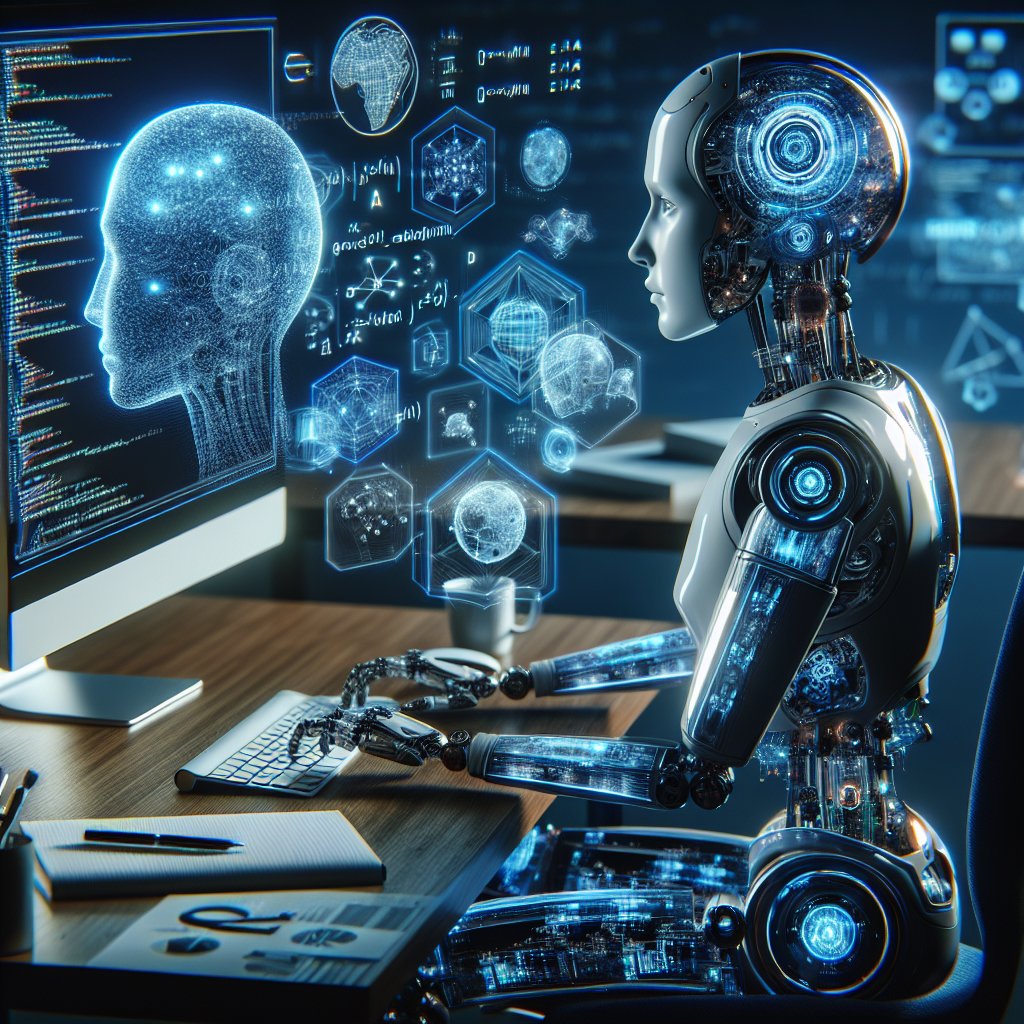As the digital age continues to evolve at a breakneck pace, one of the most pressing questions on the minds of tech industry professionals is whether artificial intelligence (AI) will replace computer programmers and engineers. This pivotal query not only highlights concerns about job security in a rapidly advancing technological landscape but also sparks curiosity about the capabilities of AI in enhancing or even autonomously executing software development tasks. In this exploration, we delve into the complexities of AI’s role in the programming realm, examining its impact on coding efficiency, the potential for automation in software engineering, and whether AI can truly capture the intricate problem-solving and creative thinking that define the essence of human programmers.
Use of AI for Computer Programmers and Engineers
The integration of Artificial Intelligence (AI) into the realm of computer programming and engineering has sparked a significant evolution in these tech-driven fields. AI tools have become essential allies for computer programmers and engineers, enhancing their capabilities to solve complex problems and develop innovative solutions with unprecedented speed and efficiency. From debugging code to optimizing algorithms, AI systems are equipped with advanced pattern recognition and machine learning techniques that allow for automation of tedious and repetitive tasks, thereby enabling professionals to focus on more creative aspects of their work. These intelligent systems not only streamline workflows but also foster a culture of continuous learning and improvement in software development and engineering projects.
The Potential for AI to Replace Computer Programmers and Engineers
The integration of artificial intelligence (AI) into the field of software development is transforming the landscape of computer programming and engineering. AI-driven tools and technologies are poised to streamline complex coding tasks, automate debugging, and even generate code, raising questions about the roles of human computer programmers and engineers. The potential of AI to augment human skills, enhance productivity, and possibly take over certain tasks is a hotly debated topic, as it touches upon the future of software development and the employment opportunities for professionals in the field.
With each leap in AI capabilities, the narrative around the relationship between AI and computer programming professionals evolves. AI algorithms have proven to be adept at learning patterns and even writing simple software programs, which has led to speculation about how long it will be before AI systems can handle more significant portions of the software development lifecycle. From designing algorithms to testing and maintenance, the potential for AI to impact the duties of computer programmers and engineers is significant, offering both opportunities for growth and challenges to job security in an ever-evolving digital world.
How Can AI Enhance the Creativity of Computer Programmers?
Artificial Intelligence (AI) is revolutionizing the field of computer programming by becoming an innovative companion for computer programmers, enhancing their creativity and efficiency. AI can assist in streamlining the coding process, from offering code suggestions to catching errors before they become problematic. As AI algorithms learn from vast databases of existing code, they can provide recommendations for improvement, predict potential issues, and suggest alternative programming patterns, which helps programmers to explore new perspectives and solutions. Additionally, AI-powered tools can automate routine tasks, freeing up programmers to focus on the more creative aspects of their work, like designing algorithms or creating unique software solutions.
The creative synergy between AI and programmers goes beyond simple task automation. AI can analyze and interpret complex data patterns to offer insights that might be overlooked by human developers. By processing large datasets quickly and accurately, AI can help programmers identify trends and patterns, leading to the creation of more innovative and effective programs. Moreover, AI’s ability to learn from experience means that it can progressively offer more personalized and relevant suggestions, continually accelerating the creative process. As a result, computer programmers who leverage AI capabilities are often able to push the boundaries of software development, producing pioneering applications that redefine what’s possible in the digital realm.
What Skills Can Engineers Develop to Complement AI Innovations?
Engineers are uniquely poised to enhance their capabilities alongside the rapid evolution of artificial intelligence (AI). To complement AI innovations, engineers can cultivate a blend of technical and soft skills that enable them to leverage AI tools effectively while ensuring that human insight remains at the core of engineering solutions. Proficiency in data analytics and machine learning can empower engineers to create, fine-tune, and interpret AI models, making these technical skills indispensable. Additionally, a deep understanding of AI ethics and governance contributes to the responsible development of AI applications.
How Is the Job Market Evolving for Computer Programmers with AI Advancement?
The job market for computer programmers is undergoing a transformative evolution with the advent of artificial intelligence (AI), reshaping the landscape for these tech professionals. As AI technology becomes more sophisticated, the demand for programmers with skills in machine learning, data management, and AI integration is skyrocketing. Companies are on the lookout for individuals who can effectively combine traditional programming expertise with the innovative approaches required for AI development and implementation. This surge is not merely creating new job opportunities but also altering the nature of programming roles, as the industry leans towards automation and intelligent systems that can enhance productivity, decision-making, and even create self-learning applications.







